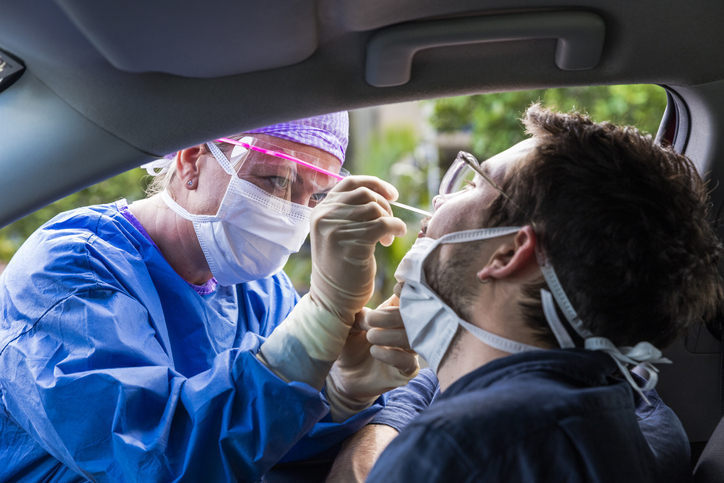The facts about COVID-19 testing
May 28, 2020

COVID-19 testing is a hot topic in the news and it leads to a lot of conversation on social media, but what do we really know about the kinds of tests available?
We spoke to Alan Loren, M.D., PhD, Executive Vice President and Chief Medical Officer, about the types of testing we have available for patients at NCH. Here’s a simplified version to help you navigate what you hear on the news.
Diagnostic testing vs. antibody testing
There are essentially two types of tests related to the COVID-19 virus, diagnostic testing to determine if you currently have the virus and antibody testing to determine if you were exposed to the virus in the past and may therefore have developed immunity.
There are several different diagnostic tests available, all designed to diagnose active disease in symptomatic patients. It is important to know these tests vary in sensitivity (ability to detect the virus) in part due to the type of testing platform and in part due to the timing of sampling since the amount of detectable virus changes throughout the course of the disease. In addition some of these tests require a simple nasal swab while others require a nasopharyngeal swab (through the nose into the back of the throat). Finally, some of these tests must be sent out and require several days to obtain results while others are performed on site and results are available within hours. The situation is further complicated by varying availability of each of these tests therefore, healthcare organizations are constantly making changes to their testing protocols based on the above information.
Recently, several reports have shown that some infected and therefore contagious persons may not exhibit signs or symptoms of illness, either because they are very early in the course of the disease (pre-symptomatic) or they are a part of a subpopulation that may never develop symptoms (asymptomatic).
Antibody testing is another process all together. This testing is designed to diagnose a patient who has recovered from COVID-19 and developed immunity to the disease. While there are more than 50 different antibody tests on the market, they currently require self-validation but do not require FDA approval, therefore meaningful information is limited. Many of these tests detect antibody to a coronavirus which is the same virus that causes the common cold and is not specific to the COVID-19 coronavirus. In addition, having the antibody may or may not confer immunity and if so, if it is temporary or permanent. To put it frankly, we do not yet know what the results of any of these antibody tests mean at this time. Eventually, we will have the answers to these questions, but until then, antibody testing is of limited value.
We hope this helps you understand the testing process. We are still experiencing a limited supply, therefore we cannot test all outpatients at this time. We have to prioritize testing to symptomatic inpatients, high risk patients, patients who require a negative COVID-19 test prior to elective medical/surgical procedures and healthcare workers to enable them to care for our patients in a safe manner. As testing capability becomes more available, this process will certainly change.
In summary, COVID-19 testing is part of a multi-layered approach to identify and treat patients with COVID-19 infection. This also includes patient screening for symptoms associated with COVID-19 as well as exposure history to a potential COVID-19 case. Our goal at NCH is to keep patients and healthcare providers as safe as possible while we continue to provide care to our patients.